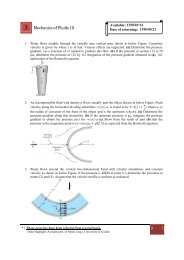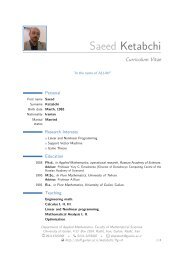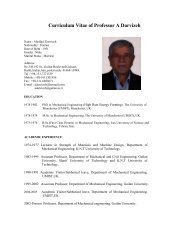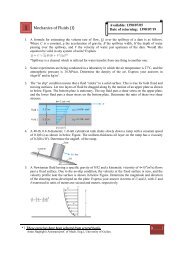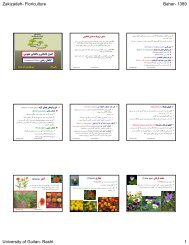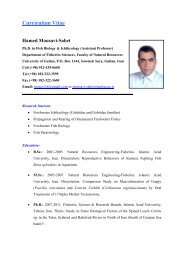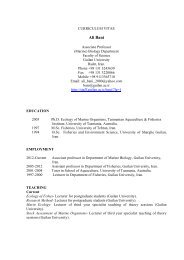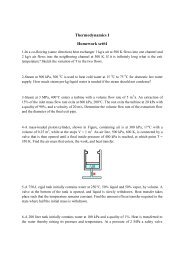Medical Tourism in Developing Countries
Medical Tourism in Developing Countries
Medical Tourism in Developing Countries
- No tags were found...
Create successful ePaper yourself
Turn your PDF publications into a flip-book with our unique Google optimized e-Paper software.
128 ● <strong>Medical</strong> <strong>Tourism</strong> <strong>in</strong> Develop<strong>in</strong>g <strong>Countries</strong>economy have grown faster dur<strong>in</strong>g the 1990s than the less liberalized ones.Hotels and restaurants experienced a growth of 10 percent per year dur<strong>in</strong>gthe 1990s, medical and health 9.0, and air transport 6.1. The highest, ITbus<strong>in</strong>ess services, grew by 21.1 percent. 106As a result of liberaliz<strong>in</strong>g policies, Thailand is ranked twentieth out of104 countries <strong>in</strong> the world with respect to the ease of do<strong>in</strong>g bus<strong>in</strong>ess 107 (thisWorld Bank rank<strong>in</strong>g is considered so important that it is touted by the Thaigovernment <strong>in</strong> its efforts to attract foreign <strong>in</strong>vestment 108 ). Malaysia andChile are not far beh<strong>in</strong>d (twenty-first and twenty-fifth respectively). 109Some liberaliz<strong>in</strong>g steps are taken specifically for the development of medicaltourism. For example, the Malaysian government is promot<strong>in</strong>g its healthcaresector by <strong>in</strong>troduc<strong>in</strong>g liberal <strong>in</strong>vestment policies (such as generous taxdeductions for companies as well as deregulation—complete or partial—off<strong>in</strong>ance, energy, transport, and telecommunications 110 ). Moreover, Malaysiahas altered its property ownership rules to allow foreigners to purchase property.It is especially <strong>in</strong>terested <strong>in</strong> attract<strong>in</strong>g foreigners/expatriates from acrossSoutheast Asia who want a second home and will require health care whenthey take up residence. 111 In other cases, medical tourism was enabled byliberalization (for example, with<strong>in</strong> Europe, medical tourism took off <strong>in</strong> partbecause of deregulation of airfares and the emergence of numerous smallairl<strong>in</strong>es that made hopp<strong>in</strong>g to Latvia for dental work feasible 112 ).Liberalization and HealthThere are conflict<strong>in</strong>g goals when it comes to liberalization and publichealth. Liberalization is pursued because it revitalizes the economy, br<strong>in</strong>g<strong>in</strong>gdynamism and change. However, it also br<strong>in</strong>gs restructur<strong>in</strong>g of public firmsand <strong>in</strong>troduces efficiency <strong>in</strong> bus<strong>in</strong>ess, both of which have huge implicationsfor employment. In the short run, the negative implications are loss ofwork, which translates <strong>in</strong>to lower <strong>in</strong>comes, and a deterioration of health.Furthermore, the liberalization of the economy that is so necessary formedical tourism can adversely affect the poor and cause additional problemswith health. This is because they will have reduced access to goods andservices at affordable prices and there can be employment implications(such as job loss), as restructur<strong>in</strong>g and adjustment occurs. Therefore, theWorld Bank claims, “There is a strong case for <strong>in</strong>stitut<strong>in</strong>g complementarypolicies to ensure that the efficiency ga<strong>in</strong>s from liberalized markets translate<strong>in</strong>to more effective atta<strong>in</strong>ment of social goals.” 113Liberalization and TradeThe most important form of liberalization aimed at help<strong>in</strong>g medical tourismis <strong>in</strong> trade. In discuss<strong>in</strong>g the Chilean liberalization reforms, Ellen Wasserman



